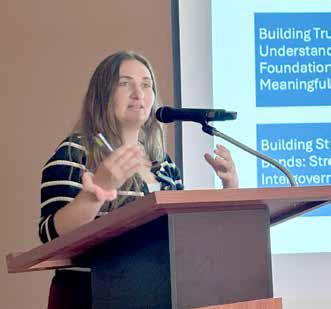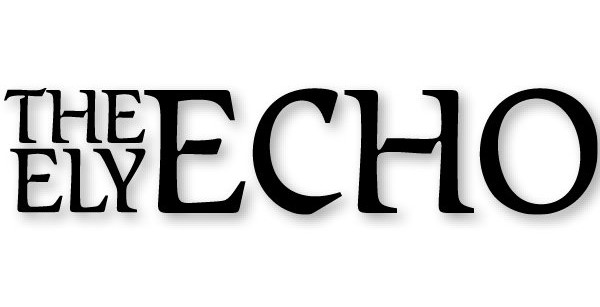Boundary Waters Connect hosted Amber Lewis, a consultant at Northspan, last Tuesday to highlight strategies for creating economic growth in the Arrowhead region that fosters a sense of belonging among all community members.
“Thinking about our rural communities in Northeast Minnesota, we have numerous challenges that we’re facing related to our sustainability, our future vitality. We sometimes see economic stagnation. We see challenges with workforce and housing and child care,” said Lewis.
She suggests that “widening divides and silos” among residents play a role in the problem for many towns. Her work with the DAWN program — Driving Access to Wealth and Networks — aims to create connections across political, cultural and demographic differences.
“I never thought I would be working for an organization that does economic development. If you’d asked me five years ago what economic development was, I probably would not have given you a very good answer,” said Lewis, “But economic development, I’ve found, is much broader than I ever realized.”
Using her master’s degree in conflict resolution, Lewis has supported many initiatives that braid inclusivity with community development. A welcoming environment fosters greater economic success, says Lewis.
“In inclusive communities, we see a (positive) impact on population, attracting and retaining talent, enhancing collaboration and networking,” Lewis said, “We’ve seen a lot of conversation in Northeast Minnesota about the decline in civic engagement in recent years. Inclusion and belonging have the power to affect that dynamic as well and bring people into civic engagement.”
As part of the Rural Minnesota Community Safety Project, a team from Northspan conducted surveys in two Arrowhead municipalities to investigate locals’ senses of physical and psychological safety — the latter defined as emotional well-being and the ability to speak up without risk of humiliation. While 82 - 98% of residents experienced physical security “most of the time,” only about half of respondents felt psychologically safe.
In order to address the problem, the organization has run programs ranging from Equity Summits in Virginia, Minnesota, to an Inclusion Learning Cohort in Deer River, which hosted 12 participants twice a month to participate in deep listening and conversation across various backgrounds.
“(They) launched a community- led project to show all of the wonderful learning that was happening around Indigenous culture in their community school,” said Lewis, “It brought together over 200 people in the community to learn about these learning experiences and culture that was happening right in their community that many people may not have even known about.”
In addition, Northspan has addressed issues of housing, food systems, health and child care and strategic planning for entities ranging from Fond du Lac Tribal and Community College to the Arrowhead Library System and beyond. The organization is currently launching an Elected Leaders Learning Cohort, which will bring together regional, nonpartisan elected officials to participate in leadership development.
“When we’re talking about amplifying pluralism,” said Lewis, “We’re talking about the value of the differences of every person in this room. You might look around and think, how many differences do we have? But when we get into conversation, when we’re talking about that psychological safety piece, being able to share our full selves, we realize we have a lot more differences, but we also have those commonalities.”
Lewis stresses the powerful connection between individual well-being and community success.
“When somebody doesn’t feel that connection, that sense of belonging in their community, then they’re also probably not feeling like they have a place to contribute. Helping people find those places that they can contribute can not only boost their sense of belonging, but also be a great benefit to your community as well.”



